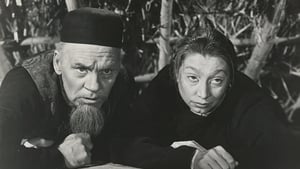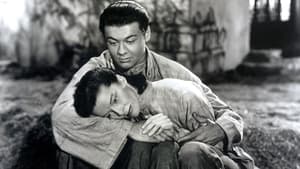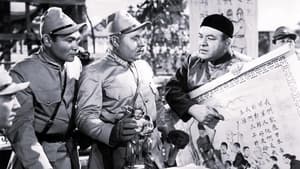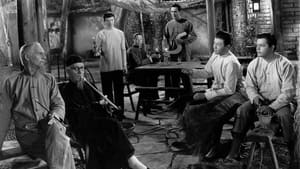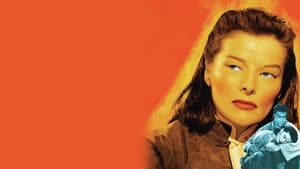Video Sources 0 Views
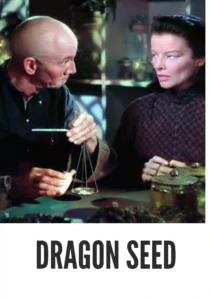
Download Dragon Seed (1944) Colorized HD | Katharine Hepburn | War Drama Epic
Synopsis

Step back in time to witness a powerful adaptation of Pearl S. Buck’s novel with Dragon Seed, a compelling war drama from 1944, now beautifully colorized to bring its story to life. Starring the iconic Katharine Hepburn and Walter Huston, this film explores the resilience and spirit of a Chinese village amidst the turmoil of war. Perfect for fans of historical dramas and those seeking stories of courage and perseverance, this HD download offers a moving cinematic experience. The movie was also released under the title Pearl Buck’s Dragon Seed.
Dragon Seed tells the story of Jade, played by Katharine Hepburn, a strong-willed Chinese woman living in a rural village during the Second Sino-Japanese War. Initially detached from the gravity of the conflict, Jade’s life is irrevocably altered when the invading Japanese army arrives. The film portrays the villagers’ struggle to adapt to the occupation, torn between submission and resistance.As the occupation intensifies, Jade and her family face increasing hardships and moral dilemmas. Her husband, Lao Er (Walter Huston), initially advocates for appeasement but gradually realizes the necessity of resistance. Inspired by the courage of guerrilla fighters and the resilience of her community, Jade becomes a symbol of defiance. The film follows their journey as they learn to fight back, protect their land, and preserve their cultural heritage. Dragon Seed is a stirring tale of ordinary people rising to extraordinary circumstances, showcasing the strength and unity of the Chinese people in the face of adversity.
Dragon Seed features a stellar cast, bringing depth and authenticity to this wartime drama:
- Katharine Hepburn as Jade Tan
- Walter Huston as Lao Er Tan
- Aline MacMahon as Lao Er’s Wife
- Akim Tamiroff as Ling Tan
- Turhan Bey as Lao San Tan
- Hurd Hatfield as Lao Ta Tan
Dragon Seed falls into the genre of war drama, epic, with strong themes of resilience, resistance, and cultural preservation. It combines elements of historical drama with personal stories of courage and sacrifice, offering a poignant and impactful cinematic experience.
Released in 1944 during the height of World War II, Dragon Seed reflects Hollywood’s efforts to portray the experiences and struggles of America’s allies. The film was produced at a time when cross-cultural understanding and solidarity were crucial for the war effort. While Dragon Seed has been subject to historical scrutiny regarding its representation of Chinese culture, it remains a significant example of wartime cinema and Hollywood’s attempt to engage with global narratives. The movie provides insights into the social and political climate of the time, as well as the evolving relationship between Hollywood and international stories.
This colorized version of Dragon Seed has been carefully restored using advanced digital techniques, enhancing the visual impact and bringing a new dimension to the film’s storytelling. The colorization process involved meticulous analysis of the original black and white footage, with attention to historical accuracy and cultural authenticity. Modern software and artistic expertise were combined to create a vibrant and engaging viewing experience, allowing modern audiences to connect with the story on a deeper level. While debates about colorizing classic films continue, this version of Dragon Seed aims to honor the original’s artistic vision while making it more accessible to contemporary viewers.
- : Harold S. Bucquet, Jack Conway (uncredited), Robert B. Sinclair (uncredited)
- : Marguerite Roberts, Jane Murfin
- : the novel by Pearl S. Buck
- : Sidney Wagner
- : Robert Kern
- : Metro-Goldwyn-Mayer
- : Metro-Goldwyn-Mayer
- : 148 minutes
- : MP4
- : HD (1080p)
- : Compatible with a wide range of devices, including smartphones, tablets, computers, and smart TVs.
Dragon Seed (1944) was met with mixed reviews upon its release, with praise for its ambition and scope, as well as criticism for its casting choices and cultural representation. Despite the controversies, the film remains a significant historical document, offering insights into Hollywood’s wartime narratives and its engagement with global issues. It continues to be studied and discussed for its cultural and historical context, as well as its portrayal of resilience and resistance in the face of adversity.
- : What is Dragon Seed about?
- A: Dragon Seed is a war drama about a Chinese village’s struggle against the Japanese occupation during World War II.
- : Is Dragon Seed (1944) based on a book?
- A: Yes, Dragon Seed is based on the novel by Pearl S. Buck.
- : Is this version of Dragon Seed colorized?
- A: Yes, this version has been professionally colorized to enhance the viewing experience.
- : What makes Dragon Seed historically significant?
- A: Dragon Seed reflects Hollywood’s wartime efforts to portray the experiences of America’s allies and engage with global narratives.
- : What is the download format?
- A: The download format is MP4, which is compatible with most devices.
- : What resolution is the download?
- A: The resolution is HD (1080p), providing a high-quality viewing experience.
Watch Dragon Seed Today!
